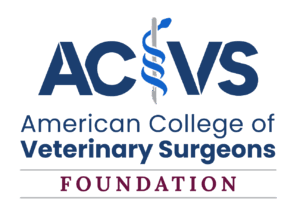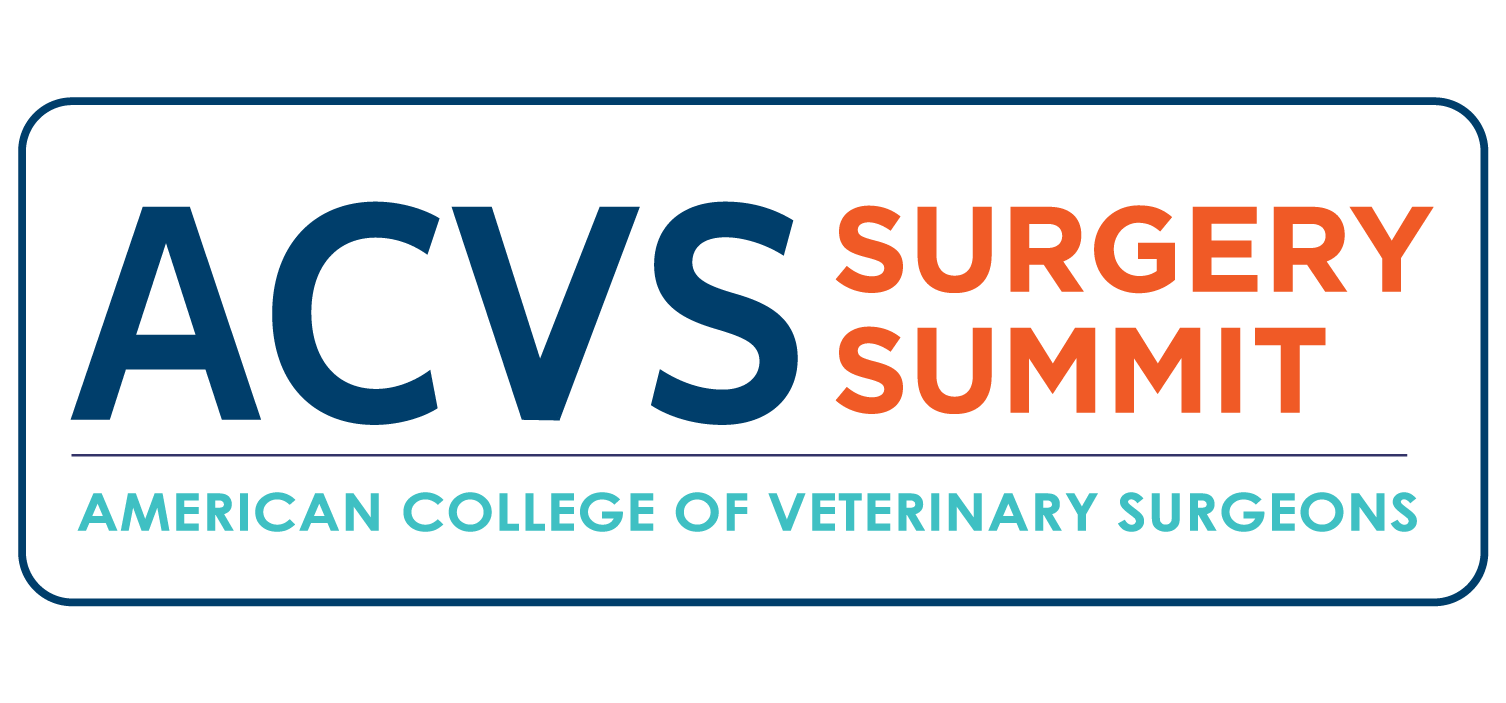Call for Abstracts: 2026 ACVS Surgery Summit
Now open: Submit an abstract for the 2026 American College of Veterinary Surgery (ACVS) Surgery Summit. The 2026 ACVS Surgery Summit will be held October 8–10 at the Charlotte Convention Center, Charlotte, NC.
Submit an abstract for the 2026 ACVS Surgery Summit. All veterinary professionals are encouraged to submit scientific abstracts or case reports to be considered for presentation during the 2026 Surgery Summit in Charlotte, NC. Please contact ce@acvs.org with questions.
February 4
Abstracts Open
May 13
Abstracts Close
June 24
Submitters Notified of Acceptance
Types of Submissions
- Scientific abstracts: Any study involving clinical cases, research/teaching animals, in vitro or ex vivo study design, surveys, model development, or surgical education.
- Case reports: Concise summary of a single case or small case series (<20 animals) describing, for example, a new disease, complication, surgical technique/procedure, or treatment/management. Case reports involve descriptive case information. Case reports must be novel and impactful, with well-thought-out and supported conclusions. Not eligible for the Residents’ Forums or poster competition.
How to Submit
Abstract submissions are open.
- Visit the abstract submission system.
- Log in to the submission system. First-time users will click “Join Now” under the New Users section. Returning users will use the “Login” link with their email address and access key. The access key is sent in an email when signing up.
- Under the Abstracts header, click the green “Click here to begin a new abstract” link to begin the abstract submission process.
- Follow the instructions within the abstract submission system for the next steps.
NOTE: An account is required for abstract submissions. If you have submitted an abstract to a previous Surgery Summit, a new account will need to be created. This account is not associated with your ACVS website login username and password.
The abstract submission system requires four sections in order to submit an abstract. Follow the onscreen prompts to complete the information within each section:
- Author Information
- Scientific Abstract/Case Report Details
- Scientific Abstract/Case Report Presentation Format and Considerations
- Attachment for Graphics
- Policy on Humane Care of Use of Animals
- Artificial Intelligence Policy
For the Scientific Abstract/Case Report Details section, you can copy and paste your abstracts from a Word file into the submission system. Please note that the long abstract has a maximum of 1,000 words.
To submit an abstract for consideration, log into the abstract submission system and click on your abstract title. Once all parts are completed, click Save Abstract and Submit Abstract.
Abstracts at the Surgery Summit
When submitting an abstract, presenters can be considered for different program opportunities at the Surgery Summit. Each program area enables the abstract presenter to share their cutting-edge research with veterinary professionals.
To qualify for the Residents’ Forums, residents must be actively enrolled in an ACVS-registered residency program at the time of abstract submission. Each resident may submit only one abstract for the Residents’ Forums.
Residents are encouraged to submit abstracts for either clinical or basic science research projects. Residents may submit additional abstracts for oral or poster presentation. Abstracts will be blinded and scored by a committee based on the criteria listed below.
The top 15 abstracts in small animal and the top 15 abstracts in large animal are placed in the respective Small Animal and Large Animal Residents’ Forums. Abstract presentations are 15 minutes, including 10–12 minutes for setup and presentation, and 3–5 minutes for questions and discussion.
Presentation time: Thursday, October 8, 1–5:30 pm
New in 2026: The ACVS Foundation will pay for the registration fees of the top 30 residents selected to present an abstract at the residents’ forums. Travel and accommodations are not included.
The flash poster presentation is an optional poster presentation that does not take the place of your full abstract poster presentation. The goal is to entice attendees to come and find out more about your research by providing them with snippets of information about your study.
Up to 15 large animal and 15 small animal poster presenters may volunteer to participate in the flash poster presentation. Additional information will be provided to selected presenters.
All veterinary professionals submitting a “poster only” abstract are eligible for consideration.
Presentation format:
Presentation type: Maximum of two PowerPoint slides
Presentation length: Two minutes
Presentation time: Thursday, October 8, 5:30–6 pm
Poster presentations are available for viewing from Thursday, October 8, through Friday, October 9. All veterinary professionals may submit abstracts to be considered for poster presentations.
Poster format:
4’ x 4’ poster setup: Wednesday, October 7, 5–8 pm
Presentation and final resident poster judging: Thursday, October 8, 6–7 pm
Teardown: Saturday, October 10, by noon
Residents’ poster competition:
To qualify for the ACVS and ECVS Residents’ Poster Competition, residents must be actively enrolled in an ACVS-registered or ECVS residency program at the time of abstract submission. They must be present during the Draft and Craft Poster Social on Thursday, October 8, 2026, 6–7 pm, at the Charlotte Convention Center.
NOTE: If a resident is selected to present in the Residents’ Forums, they cannot also have a poster for consideration in the residents’ poster competition.
New in 2026: The ACVS Foundation will pay for the registration fees of the top five scoring posters presented by residents. Travel and accommodations are not included.
Small and large animal abstracts and case reports will be presented throughout the meeting. All veterinary professionals may submit abstracts.
Abstract presentations will be 15 minutes: 10–12 minutes for setup and presentation, and 3–5 minutes for questions and discussion.
Surgery Residents’ Awards
During the ACVS Residents’ Forums and Scientific Poster Presentations, surgery residents present results from original large animal and small animal research and take part in the Outstanding Surgery Residents’ Awards competition. The competition encourages the development of clinically important research and the dissemination of the results of these investigations, particularly those conducted by surgery residents.
Awards are granted for best presentation quality, highest clinical impact, novelty of design or approach, and overall highest scoring presentation.
The overall highest scoring presentation for large animal and small animal are selected to present their abstract at the ECVS meeting.

New in 2026: The ACVS Foundation will pay for the registration fees of the top 30 residents selected to present an abstract at the residents’ forums and the top five scoring posters presented by residents.
Travel and accommodations are not included.
Artificial Intelligence Policy
Before submitting final work generated by artificial intelligence (AI) tools, in whole or in part, authors must make it known that AI generated some or all of the abstract. Authors are fully responsible for the content of their manuscript, even those parts produced by an AI tool, and are thus liable for any breach in publication ethics.
Sample Disclaimer
Disclaimer: Some or all of this abstract submission was generated using artificial intelligence.
Presenter Notification
The presenting author MUST submit their own abstract(s) and will be notified via email if the abstract is accepted or declined no later than June 24, 2026.
If selected, the presenting author must register for the Surgery Summit and pay the appropriate registration fee.
If there are any questions, please contact ACVS at ce@acvs.org.



